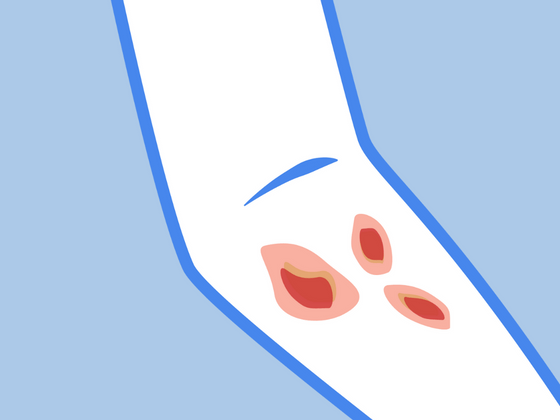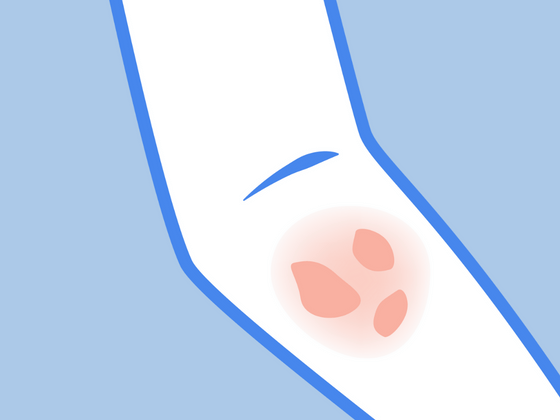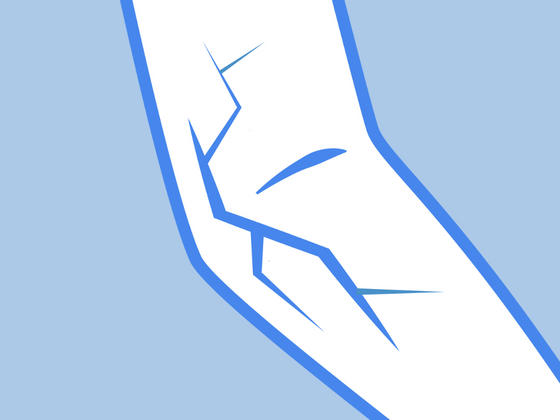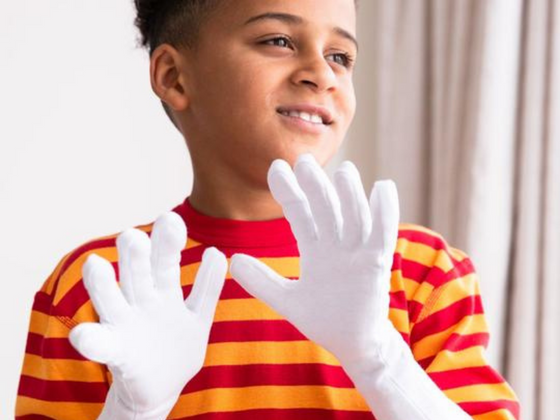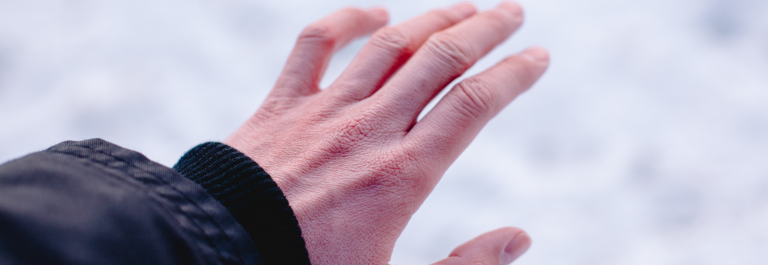Most people pick their skin occasionally, whether to squeeze a pimple, peel away sunburn, or scratch that itchy scab off your knee.
Due to a range of neurological, psychological, and environmental factors, however, for some individuals, skin picking may become a chronic behavior (excoriation disorder) manifesting in compulsive urges to pick or scratch at your skin repetitively.
Over time, skin picking disorder can take a severe toll on your physical health, causing cuts, bleeding, or bruising due to continuous ruptures of the skin's protective barrier.
If this sounds familiar, throughout this blog, we'll explore everything you need to know about:
-
The link between skin-picking behaviors and autism spectrum disorder
-
Skin-picking disorder as a symptom of multiple psychiatric conditions
-
How to treat skin-picking behavior and soothe scratched, dry skin
Keep reading to learn more about coping with compulsive skin picking today, protecting your skin, and improving your mental health.
Skin Picking: Autism
Autism spectrum disorder is a lifelong developmental disability that affects how you communicate and interact with the world around you.
It is estimated that approximately 2.21% of adults in the United States are autistic, as well as 1 in 36 children*
As a neurodiversity, autism is often characterized by:
-
Struggle with social interaction
-
Restrictive and repetitive behaviors
-
Hypersensitivity or under-sensitivity of the senses, which may require careful attention to environmental factors like using detergent for sensitive skin.
-
Heightened feelings, such as fear, anger, stress, or anxiety
-
The development of special interests
-
Sensory overload and meltdowns
Why Do Some Autistic People Skin Pick?
For people with autism spectrum disorder, skin-picking can be a form of sensory self-regulation, helping to mitigate negative emotions such as anxiety and overwhelm by assisting the brain to focus on one specific task or to provide stimulation when bored.
This body-focused repetitive behavior is often involuntary and happens outside of conscious awareness, meaning that it can be challenging for a person to stop picking, especially under stress.
Other sensory outlet activities every day for people with autism may include head banging, hair pulling, nail-biting, or hand flapping (which may also be examples of stimming behaviors).
Skin Picking and Psychiatric Conditions
There are many other reasons why a person might feel compelled to pick their skin, including multiple mental health conditions and anxiety disorders.
For example, for people with obsessive-compulsive disorder, skin picking or hair pulling may become a compulsive behavior to reduce anxiety caused by their obsessions or prevent something bad from happening.
MRI scans of patients with obsessive-compulsive disorder have also identified that issues with impulse control may be linked to possible dysfunctions in a part of the brain called the caudate nucleus, underlining a neurological cause for skin picking.
Other Causes of Skin Picking Disorder
Beyond anxiety, skin-picking disorder has also been shown to link to other neurological conditions such as Tourette syndrome, ADHD, and dementia.
From a biological standpoint, more research has also shown that skin picking could be linked to hormone problems, such as issues with the thyroid.
How To Treat Excoriation Disorder
Skin-picking disorder can have a lasting impact on a person's physical and mental health.
For example, in chronic cases, skin picking may cause itchy dryness, painful sores, wounds and scarring, and an increased risk of developing secondary infections.
When it comes to your mental health too, a skin-picking disorder may lead to increased anxiety levels, stress, or depression.
If you or your loved one struggles to stop picking, knowing that help is out there is essential. To give you an idea of where to get started, we've got a few different treatment options for you:
Treating Behavioral Symptoms
In the case of skin picking disorder, some of the most meaningful treatments aim to work from the inside out, offering behavioral interventions.
Therapy
Cognitive behavior therapy (or CBT) works by deepening your awareness of skin-picking behaviors, exploring the underlying triggers for negative feelings, and changing your behavior through habit reversal training.
CBT is effective for both adults and children alike.
Medication
Particularly when skin picking disorder coincides with ill mental health, taking psychiatric medication may be helpful.
For example, selective serotonin reuptake inhibitors (SSRIs) have been shown to help ease OCD symptoms by increasing the levels of serotonin in your brain.
We encourage you to consult a healthcare professional before deciding which medications are best for you.
Healing Damaged Skin
On a physical level, skin-picking can leave an individual with patches of dry, damaged, or sore skin that may benefit from gentle, natural moisturizers like beef tallow cream.
To help restore your skin's protective barrier, we have a few treatment options to suggest, including gentle eczema cream:
Use A Moisturiser
This Baby & Adult Soother contains just three Chinese herbs in a nourishing base of olive oil and beeswax to soothe dry skin conditions. For cleansing damaged skin, consider using gentle eczema soap as part of your skincare routine.
To soothe irritated skin, generously apply to the affected area of your body twice a day or as often as necessary.
Wear Anti-Scratch Clothing
For various reasons, skin-picking may become a body-focused repetitive behavior around heightened stress, such as at nighttime when anxieties may run high as you try to fall asleep.
This sounds familiar; investing in anti-itch pajamas may help protect your skin from picking and scratching while improving sleep quality.
For example, this 100% Organic Cotton Closed Eczema Mittens for Adults is made with mid-weight 100% organic cotton, providing cotton mittens to help prevent compulsive scratching or picking.
For your little one, these Cotton ScratchSleeves Baby Eczema Pajamas offer cooling comfort while protecting your little one's skin from relentless scratching. Consider pairing protective clothing with gentle eczema cream for babies for comprehensive skin care. These pajamas offer cotton stretch with stay-closed silk mitts and booties to reduce scratching from their fingers and toes.
Heal From Compulsive Skin Picking Today
No matter the cause of your or your loved one's skin-picking, help is possible. Follow these tips to help you get to the bottom of your skin-picking compulsion today and find the best treatment method to improve your physical and mental health.

